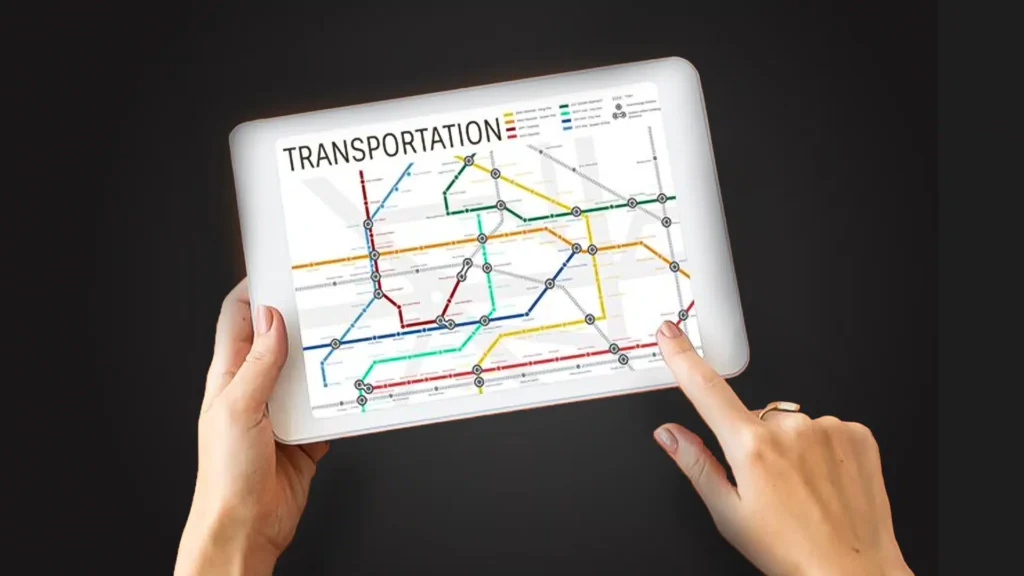In today’s competitive logistics environment, businesses are constantly seeking ways to optimize costs, reduce risks, and improve efficiency. While road shipping has long been a go-to method for freight transport, intermodal shipping offers a compelling alternative. Combining the best of rail and road transport, intermodal shipping can provide significant advantages for businesses looking to streamline their supply chain. Let’s explore why intermodal shipping may be the smarter choice over traditional road shipping.
Cost Savings Without Compromise
A key advantage of intermodal shipping lies in its potential to reduce costs. Rail transport, a fundamental element of intermodal logistics, consumes significantly less fuel compared to trucks, making it a more cost-effective solution for long-distance freight.
Main Significance:
Businesses can achieve substantial cost savings. By transitioning from road-based transportation to intermodal solutions. Reduced fuel consumption directly translates to lower transportation expenses, ultimately contributing to increased profitability.”
This version maintains a formal tone by using more sophisticated vocabulary while ensuring clarity and readability.
Comparable Transit Times
Contrary to a widely held misconception, intermodal shipping does not directly translate to extended transit times. When implemented efficiently using optimized rail networks and seamless transitions to road transport for final delivery. Intermodal shipping can achieve transit speeds that are highly competitive with traditional road transport.
Key factors contributing to this efficiency include:
- Strategic Rail Infrastructure: Well-maintained and efficiently managed rail networks play a crucial role in minimizing delays associated with intermodal shipping. Regular maintenance, timely upgrades, and optimized scheduling contribute to a reliable and swift rail transportation system.
- Streamlined Handoffs: The seamless transfer of cargo between rail and road transport modes is paramount for maintaining competitive transit times. Efficient logistics planning, including optimized transfer points and minimized dwell times, ensures a smooth and uninterrupted flow of goods.
An Example:
RailGateway shows this efficiency with its 24-hour on-site loading and delivery services in major cities. This commitment to rapid turnaround times minimizes delays at transfer points, ensuring a swift and efficient transition between rail and road transport!
Reduced Theft and Cargo Risks
Cargo theft and damage are big problems for companies that only use trucks to ship things. Trucks driving on roads are easy targets for thieves, and the multiple times they have to be loaded and unloaded can damage goods. This can cost companies a lot of money and mess up their shipping schedules.
Intermodal shipping is a smart way to solve these problems. It uses trains along with trucks, which makes shipping much safer. Trains are harder to steal from and have better security. Plus, because goods are loaded into containers and moved by train for long distances, they don’t have to be handled as much. This means less chance of damage.
Reduced Risk of Theft:
- Controlled Environment: Rail transport operates within a more controlled and secure environment compared to over-the-road trucking. Rail yards and terminals are typically equipped with robust security measures, including surveillance systems, access controls, and dedicated security personnel. This controlled environment significantly reduces the opportunities for unauthorized access and theft.
- Reduced Exposure: Unlike trucks that traverse vast distances on open highways, rail transport confines cargo to designated rail lines, minimizing exposure to potential thieves and reducing the risk of opportunistic theft.
Minimized Product Damage:
- Reduced Handling: Intermodal shipping minimizes the number of times cargo is handled during transit. By consolidating shipments into containers and transporting them directly by rail, the need for frequent loading, unloading, and transfer operations is significantly reduced. This minimizes the risk of damage that can occur during manual handling.
- Improved Protection: Rail transport provides a more stable and controlled environment for cargo compared to road transport, which is subject to the stresses of road conditions and weather variations. This reduced exposure to external factors helps to minimize the risk of damage during transit.
Eco-Friendly and Sustainable Logistics
Intermodal shipping is a much greener choice than relying solely on trucks. Trains are far more fuel-efficient than trucks, producing significantly fewer greenhouse gas emissions. In fact, according to a study on transportation emission, rail transport emits about 82% less carbon dioxide per mile than trucking. This makes intermodal shipping a more sustainable option for businesses that want to reduce their environmental impact.
Why This Matters Now
Environmental regulations are becoming stricter, and consumers are increasingly demanding that businesses operate in a more sustainable way. By switching to intermodal shipping, businesses can demonstrate their commitment to environmental protection and gain a competitive advantage in the marketplace.
Choosing intermodal shipping can help businesses meet environmental regulations, reduce their carbon footprint, and appeal to eco-conscious consumers and boost intermodal sustainability.
Specialized Options for Every Need
Intermodal shipping stands out as a versatile and adaptable mode of transport, offering tailored solutions to meet the unique requirements of various freight needs. Its flexibility allows for seamless transitions between different modes of transportation, such as rail and truck, optimizing efficiency and cost-effectiveness.
One notable example is RailGateway, which specializes in temperature-controlled solutions for perishable goods. This makes sure that sensitive cargo, such as pharmaceuticals or fresh produce, arrives at its destination in pristine condition, maintaining its quality and integrity throughout the journey.
Key Offerings:
- Refrigerated Options: These specialized containers maintain precise temperature levels, crucial for preserving the integrity of perishable goods during transit.
- Heated Shipping: This service is essential during colder months, preventing sensitive cargo from freezing and ensuring its safe arrival.
By leveraging the strengths of intermodal shipping and specialized services like temperature control, businesses can streamline their supply chains, reduce costs, and enhance the overall quality and reliability of their freight transportation.
Simplified Supply Chain Management
Intermodal shipping empowers businesses to optimize their logistics operations while maintaining the flexibility necessary to adapt to changing market demands. By seamlessly integrating multiple modes of transportation, such as rail and truck, intermodal shipping streamlines the movement of goods, enhances efficiency, and reduces overall transportation costs.
RailGateway plays a pivotal role in assisting businesses to effectively manage their freight transportation needs. Our comprehensive suite of services extends beyond mere transportation, encompassing valuable consulting services and robust tracking systems.
These tools provide businesses with the insights and control they need to make informed decisions, optimize their supply chains, and ensure the timely and secure delivery of their goods.
Enhanced Support and Guidance:
Our commitment to client success goes beyond simply providing transportation services. We recognize that transitioning to intermodal shipping can involve a learning curve. To facilitate a smooth transition, RailGateway offers dedicated expert guidance throughout the entire process.
Our team of experienced professionals works closely with clients, providing expert advice on every step of the journey, from initial planning and route optimization to seamless execution and ongoing support.
This personalized approach ensures that businesses can confidently embrace intermodal shipping and reap its numerous benefits.
A Strategic Advantage for Modern Businesses:
Intermodal shipping is not merely an alternative to traditional road transport; it represents a strategic advantage for forward-thinking businesses seeking to enhance their competitiveness and sustainability. By leveraging the cost-effectiveness, efficiency, and reduced environmental impact of rail transportation, businesses can significantly improve their bottom line while minimizing their carbon footprint. Whether shipping domestically within Canada or across international borders to the USA, RailGateway simplifies the transition to intermodal shipping, making it a seamless and efficient component of your overall logistics strategy.
Conclusion
In summary, intermodal shipping offers a compelling alternative to road transport. By combining rail and truck, it enhances efficiency, reduces costs, and minimizes environmental impact. This strategic approach makes intermodal shipping an attractive option for businesses seeking to optimize their logistics and improve their overall supply chain performance.
So contact us today to learn more on why you should choose intermodal over road shipping?





